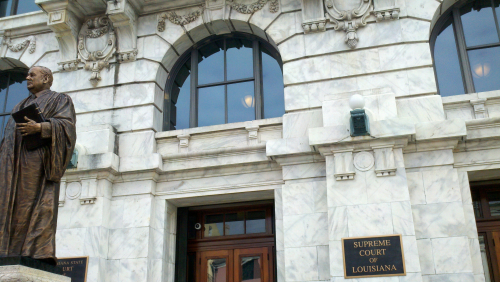Here’s an important case we’ve been following out of Louisiana.
The case is an appeal to the Louisiana Supreme Court in an expropriation case from a quick-take of a Mississippi River docking facility downriver from New Orleans. The Port took the entire VDP facility, made no change in how the property was used, and eventually turned over operation of the facility to a “hand-picked” private operator.
In St. Bernard Port, Harbor & Terminal District v. Violet Dock Port, Inc., No. 2017-C-0434 (Jan. 30, 2017), the Louisiana Supreme Court upheld the taking of VDP’s property by the Port so that the Port could run it itself. The owner challenged the power to take, as well as the compensation awarded. The Supreme Court held that the Port has the power to take the docking facility so that the Port could operate the facility:
Consistent with the authority given to public ports to expropriate property, the trial court made a factual determination that the Port’s purpose for expropriation was to “build and operate a terminal to accommodate transport of liquid and solid bulk commodities into national and international commerce to and from St. Bernard.” This purpose falls squarely within the constitutional definition of “public purpose” for public ports.
Slip op. at 10. The court interpreted the “business enterprise clause” of the Louisiana Constitution, concluding that the Port’s expropriation was not for the purpose of operating VDP’s facilities or “halting competition with a government enterprise.” Id. Or at least the trial court was not “manifestly erroneous” when it concluded the clause didn’t apply as a factual matter. The court also rejected the owner’s argument that the real purpose was to take over VDP’s valuable Navy contracts and to halt competition. Not so, held the court, the record suggested the real reason for the taking was because the Port was at capacity and “sought to expand its cargo operations.”
As the Church Lady would say, “how convenient!”
But on the issue of just compensation, the court agreed with the owner that it was undercompensated. The owner argued that because its property is unique, the lower courts’ sole reliance on fair market value as the only applicable valuation standard was wrong, and that evidence of replacement cost should have been admitted. (We helped write the Owners’ Counsel amicus brief which focused on the just compensation issues, arguing that replacement cost, not fair market value, was the correct measure of compensation.)
The Louisiana Constitution provides not only for just compensation, but also require the owner be compensated for “the full extent of loss.” The court focused on the trial court’s decision to accept the Port’s expert’s testimony:
Here, we find the trial court used the incorrect standard for evaluating experts’ valuation testimony. Explaining why it accepted the Port’s expert testimony rather than Violet’s, the court stated: “It is the opinion of this Court that it does not have the discretion to ‘split the baby’ and arrive at a valuation somewhere in between” the two expert opinions. This is erroneous. A trier of fact is not required to make a binary choice and accept one side’s testimony in its entirety, but is instead empowered to weigh strengths and weaknesses of expert testimony. To the extent the trial court held otherwise, this is legal error. … Further this error was prejudicial to Violet insofar as the trial court set just compensation in the exact amount put forward by the Port’s experts.
Slip op. at 15.
Congratulations for our Owners’ Counsel colleague Randy Smith for a win on the compensation issue. Something tells us he isn’t quite done with the public use question and that we may see more.
Here’s a media report on the decision: “St. Bernard’s seizure of private port didn’t violate law, but price was too low, high court says.”
